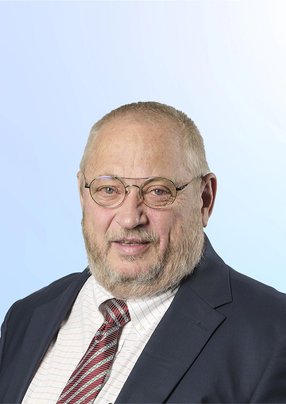
Neal Froneman
CEO & Executive Director at Sibanye-Stillwater Industry
What is Sibanye-Stillwater's strategic vision?
We're a multinational mining and metals processing group with a clear purpose: safeguarding global sustainability through our metals. We're increasing our investment in green metals for the energy transition to reduce global warming. Our aim is to produce metals with strong environmental credentials.
This involves expanding secondary mining and recycling to complement our primary mining activities. Secondary mining refers to processing waste materials from previous mining operations, while recycling involves reprocessing end-of-life products. Our vision is to deliver superior shared value with high ESG responsibility.
What are mining's biggest challenges?
One of our industry's significant challenges is its negative reputation. Many stakeholders, especially young people, have concerns about mining's environmental and social impacts. However, I believe this reputation isn't entirely deserved, given how much our industry has transformed and modernised.
The clean-energy transition presents an opportunity to improve mining's image. Critical metals are essential for this transition, putting mining in a potentially positive spotlight. As we decarbonise and adopt sustainable practices, we can prove our contribution to addressing climate change.
How is the mining industry changing?
Modern mining involves extracting resources to create opportunities across the value chain. This includes sharing value with communities, governments, and civil society. Stewardship of metals through secondary mining and recycling is crucial.
The world is becoming less global and more polarised, particularly regarding minerals value chains. Mining companies may play a leading role in determining where metals go, a significant new responsibility. Positioning within the right ecosystems is crucial for success in this changing landscape.
How is talent recruitment changing?
We face regional difficulties in accessing skills, particularly in North America. In Montana, for example, there were up to three job openings for every unemployed person. However, at Sibanye-Stillwater, we generally attract talent due to our dynamic strategy and appealing purpose.
To attract young people, our industry must evolve to become more 'bionic'. This means implementing technology to make work easier across age ranges. Artificial intelligence (AI), digital data, and automation can make people more effective and remove routine tasks from work.
What is your leadership style?
I describe myself as a 'chief enabling officer'. I believe in surrounding myself with good people and working in a team environment. My role is to support, guide, and liberate top performers to realise their value in support of our corporate purpose and strategy.
Empowerment is crucial, but consensus isn't always possible. As CEO, I recognise when to make decisive calls. I emphasise the importance of developing strategy together and fostering a resilient team that can address continuous change.
What technologies are important for mining's future?
At Sibanye-Stillwater, we're exploring new ways to use data. With the equivalent of 3,000 factories underground and over 70,000 employees, we generate vast amounts of data. We've funded DigiMine, a digital laboratory at a South African university, to use AI for data assessment.
Grid-scale storage is becoming critical for a clean-energy economy. While lithium-ion batteries are the current benchmark, we see potential in vanadium redox flow batteries and molten-salt batteries. These technologies offer longer duration storage capabilities. Nuclear energy, particularly small modular reactors, is another area of interest for us.
What will Sibanye-Stillwater look like in the future?
In 10-15 years, we aim to be uniquely positioned in the critical-metals space. These metals could provide a competitive advantage to build a large energy-solutions business. This aligns with our concept of pandemic resilience and antifragility, which refers to systems that gain strength from disorder or volatility.
I emphasise the importance of a responsible approach and a strong company culture. I take pride in Sibanye-Stillwater's commitment to doing what's right and find daily inspiration in our work. Our future success will be built on this foundation of ethical, sustainable practices.
How do you view Africa's role in the mining industry?
Africa is a significant untapped source of metals that are in short supply for the future clean-energy economy. The western world needs to cultivate strong trade agreements with African countries to secure credible supply while advancing Africa's growth as an underdeveloped continent.
At Sibanye-Stillwater, we're leveraging our African heritage while also positioning ourselves to deliver critical metals in North America and Europe. This global approach allows us to support the world in dealing with climate change while contributing to economic development in various regions.
What's your approach to innovation in mining?
Innovation is at the core of our strategy. We've built our strategic foundation on what we call our iCARES values: innovation, commitment, accountability, respect, enabling, and safety. These values drive our approach to every aspect of our business.
We're not just a mining company anymore. We're providing solutions. But you don't achieve those positions by being average. It comes back to what I learned at a young age: you're not going to get everything right, so if you're going to fail, fail quickly. That's innovation.
Neal Froneman was talking to McKinsey, as part of its Insights series.
To read the full story in the magazine click HERE
Make sure you check out the latest edition of Mining Digital and also sign up to our global conference series - Manufacturing LIVE 2024
Mining Digital is a BizClik brand
